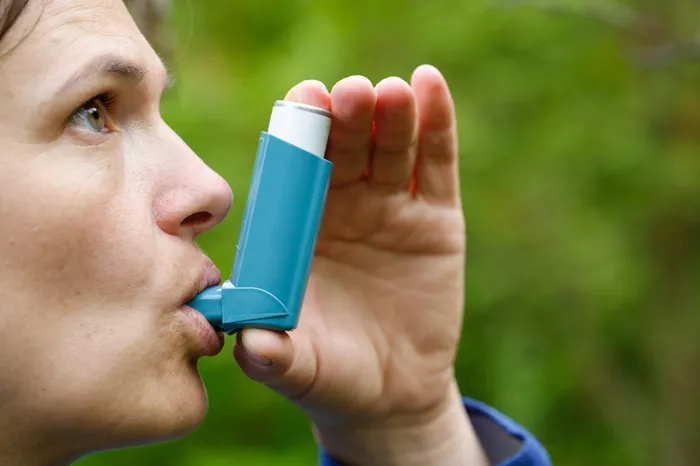Anxiety attacks can be overwhelming, leaving people feeling helpless and out of control. Many individuals seek quick relief through various methods, including medication and breathing techniques. One common tool used by some people during an anxiety attack is an inhaler. But can an inhaler really help with anxiety? In this article, we will explore the relationship between inhalers and anxiety, the science behind them, and whether or not they offer true relief for anxiety sufferers.
Can Inhalers Help With Anxiety?
The short answer is that inhalers are not designed to treat anxiety attacks. Inhalers contain medications that are aimed at managing airway constriction in the lungs, not calming the mind or managing anxiety itself. However, there are some ways inhalers may indirectly help during an anxiety attack.
1. Breathing Easier
During an anxiety attack, one of the most distressing symptoms is the feeling of not being able to breathe properly. Inhalers, particularly those with bronchodilators, help open the airways in the lungs and make breathing easier. For someone who experiences shortness of breath or tightness in the chest during anxiety attacks, an inhaler could provide temporary relief from these physical symptoms.
This relief may help the person feel less panicked, which can, in turn, help reduce their anxiety levels. However, it’s important to note that inhalers do not address the psychological components of an anxiety attack.
2. Distraction and Focus
For some individuals, the use of an inhaler may act as a distraction, helping to focus on the action of using the inhaler rather than the overwhelming feelings of anxiety. The physical act of taking a puff from the inhaler and focusing on the breathing process can be grounding, allowing the individual to shift their attention away from the anxiety and focus on their physical state instead.
However, this is not a long-term solution for managing anxiety and should not be relied upon as the primary method of treatment.
3. Calming the Body
While inhalers do not have a direct calming effect on the mind, easing physical symptoms like shortness of breath and chest tightness may help some individuals feel calmer during an anxiety attack. This can reduce the overall intensity of the attack, making it easier for the person to regain control of their emotions.
However, for individuals who do not have a respiratory condition like asthma, using an inhaler in this way may not be as effective or necessary.
Alternatives to Inhalers for Managing Anxiety
Although inhalers may offer temporary relief for some individuals experiencing anxiety-related breathing issues, they are not an ideal or long-term solution for managing anxiety. Here are a few alternatives that can be more effective:
1. Breathing Exercises
One of the most effective ways to manage the breathing difficulties associated with anxiety is through controlled breathing exercises. Techniques like deep breathing, diaphragmatic breathing, or the 4-7-8 breathing method can help slow down the rapid, shallow breathing associated with anxiety, promoting relaxation and reducing panic.
2. Cognitive Behavioral Therapy (CBT)
CBT is a highly effective treatment for anxiety disorders. It helps individuals identify negative thought patterns and replace them with more balanced and rational ones. CBT can help a person gain a better understanding of their anxiety triggers and learn coping mechanisms to manage future anxiety attacks.
3. Medications
For some individuals, prescription medications such as selective serotonin reuptake inhibitors (SSRIs) or benzodiazepines may be recommended to help manage anxiety symptoms. These medications are prescribed by healthcare professionals and can help reduce the frequency and severity of anxiety attacks.
4. Mindfulness and Relaxation Techniques
Mindfulness practices, such as meditation, yoga, or progressive muscle relaxation, can also help individuals manage their anxiety. These techniques help train the mind to stay focused on the present moment, reducing feelings of anxiety and increasing relaxation.
When to Seek Professional Help
If anxiety attacks are frequent, overwhelming, or impacting your daily life, it’s important to seek professional help. A healthcare provider can offer guidance on managing anxiety through therapy, medications, or lifestyle changes. While inhalers may provide temporary relief in certain situations, they should not be used as a substitute for proper anxiety treatment.
Conclusion
Inhalers are designed to help with respiratory issues, not anxiety. While they may provide temporary relief from breathing difficulties during an anxiety attack, they do not address the root causes of anxiety or panic. Individuals experiencing anxiety attacks should consider other treatments such as breathing exercises, therapy, and medications to manage their symptoms.
If anxiety attacks are frequent or severe, it’s essential to consult with a healthcare professional to explore the best treatment options. Inhalers should not be relied upon as a solution for anxiety and should only be used as directed by a medical professional for respiratory conditions.
Related articles:
- How To Deal With Anxiety Attacks At Work?
- The 5 Best Ways to Stop Anxiety Attacks
- How Ice Baths Can Help Alleviate Anxiety: A Guide To Cold Water Therapy


